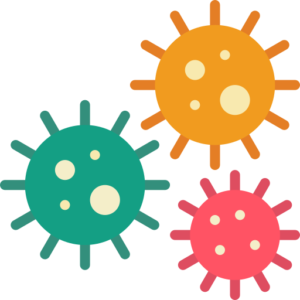Infections and Arthritis
 Infections can cause joint pains in multiple ways. Many infections such as viral fevers can cause joint pains as a part of their infectious condition. This is called Viral arthritis. Hepatitis, Chikungunya, Zika and Dengue viruses are known to cause joint pains during the infection course. HIV can also cause joint pains in the course of the disease. These joint pains usually subside with the infection course.
Infections can cause joint pains in multiple ways. Many infections such as viral fevers can cause joint pains as a part of their infectious condition. This is called Viral arthritis. Hepatitis, Chikungunya, Zika and Dengue viruses are known to cause joint pains during the infection course. HIV can also cause joint pains in the course of the disease. These joint pains usually subside with the infection course.
 Reactive arthritis is a condition where joint pains develop a few weeks after recovery from an infection. Around 10% of patients do not report a previous infection. The joint pains develop as a response to the infection there by meaning as a reaction. Joint swellings are common and there might be restricted joint movement due to pain and swelling. The common organisms are those causing food poisoning or a urinary tract infection. Eye involvement can be present with fatigue, pain while passing urine. Skin rashes can develop. In most patients, these symptoms have a tendency to resolve in around few months. In around 30% of patients, chronic long term symptoms develop which might evolve into a specific type of arthritis.
Reactive arthritis is a condition where joint pains develop a few weeks after recovery from an infection. Around 10% of patients do not report a previous infection. The joint pains develop as a response to the infection there by meaning as a reaction. Joint swellings are common and there might be restricted joint movement due to pain and swelling. The common organisms are those causing food poisoning or a urinary tract infection. Eye involvement can be present with fatigue, pain while passing urine. Skin rashes can develop. In most patients, these symptoms have a tendency to resolve in around few months. In around 30% of patients, chronic long term symptoms develop which might evolve into a specific type of arthritis.
When an infection enters a joint through the blood or directly through an injury, it forms infection of that particular joint called Septic arthritis. Septic arthritis is a sudden onset severe pain with swelling and inability to move the joint. The infection has to be drained and treated immediately as the infection can erode the joint and bone. Antibiotics used intra articularly( directly into the joint) or through oral route are required for a long time. Incomplete treatment might complicate the infection.
